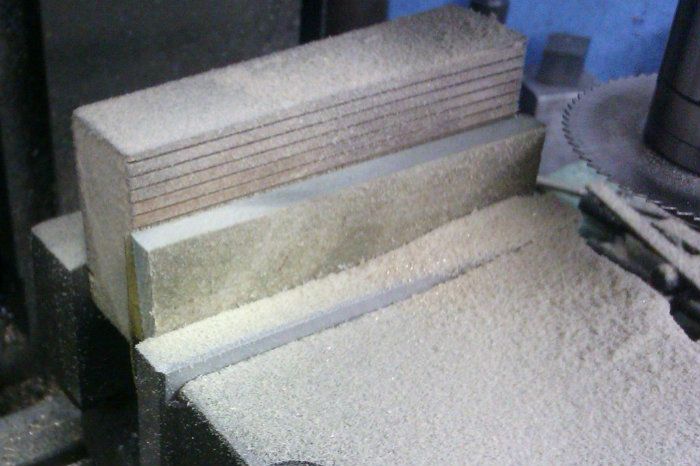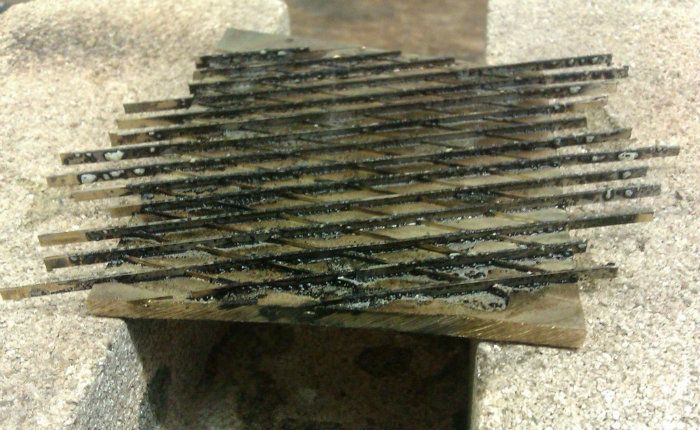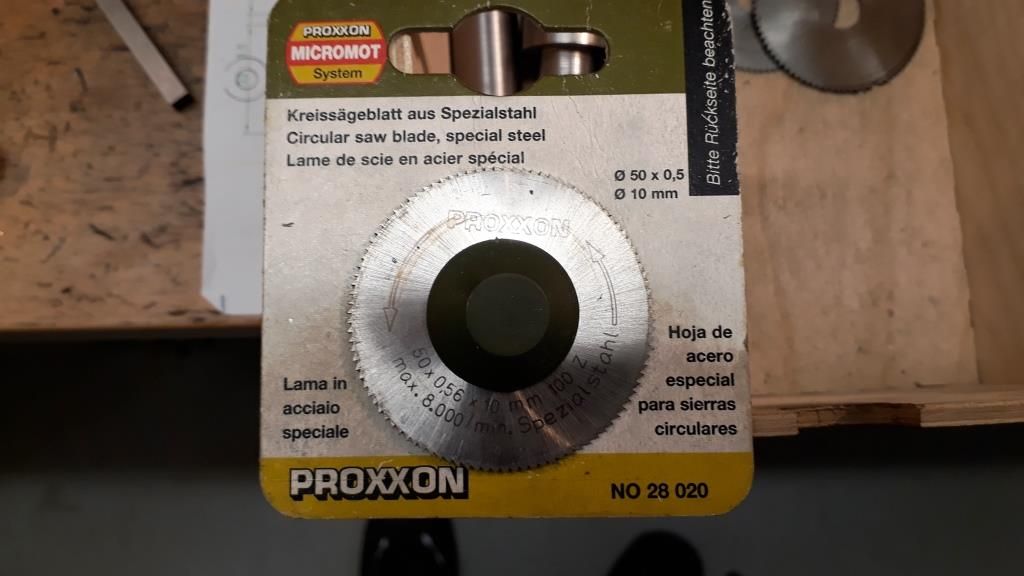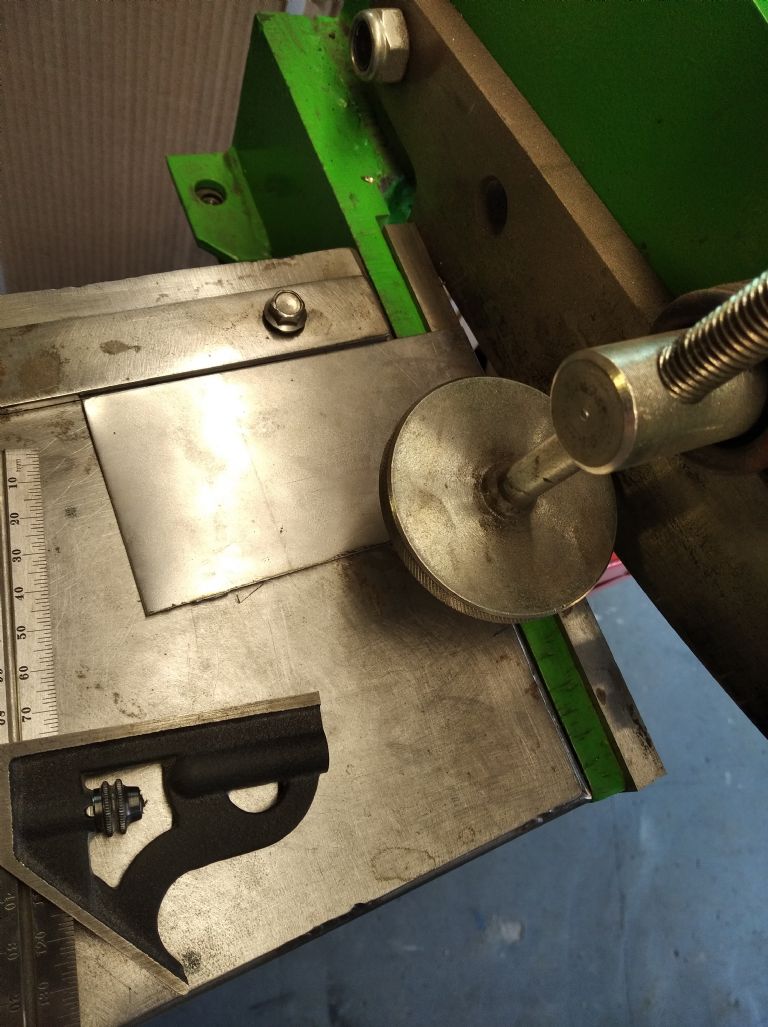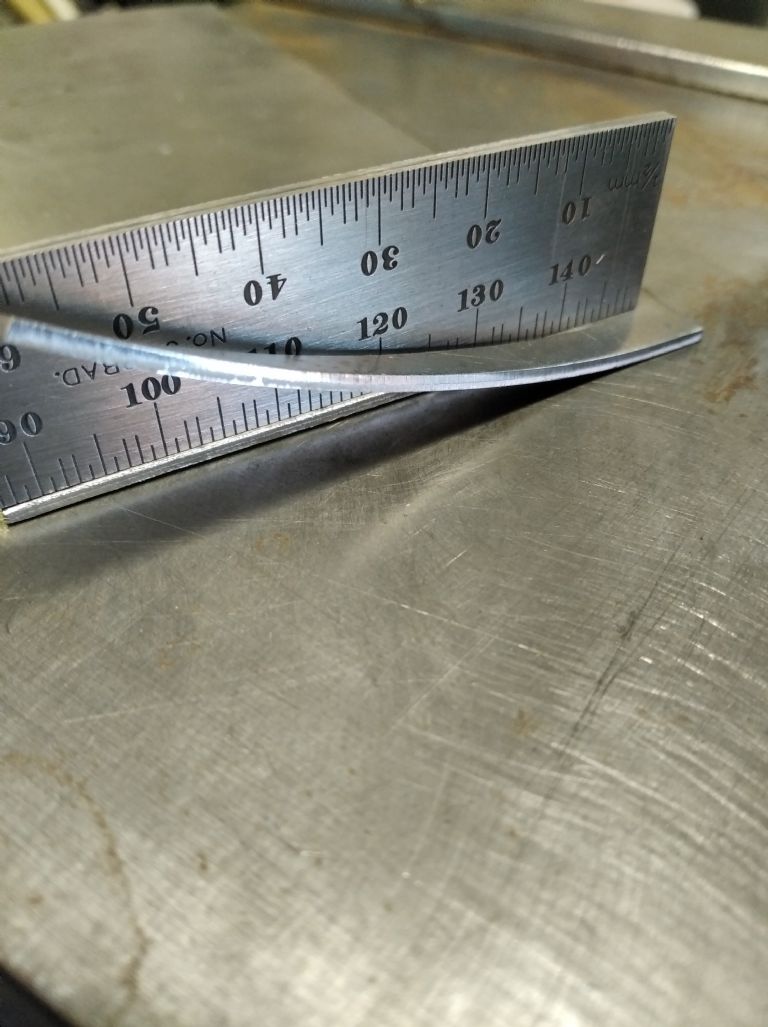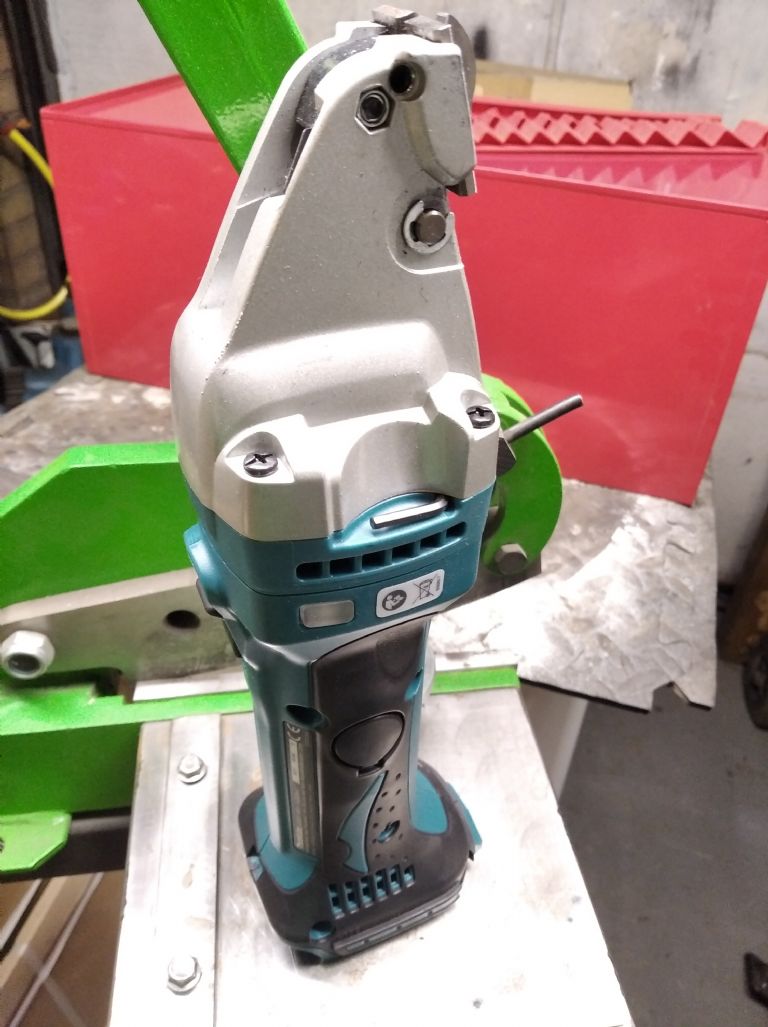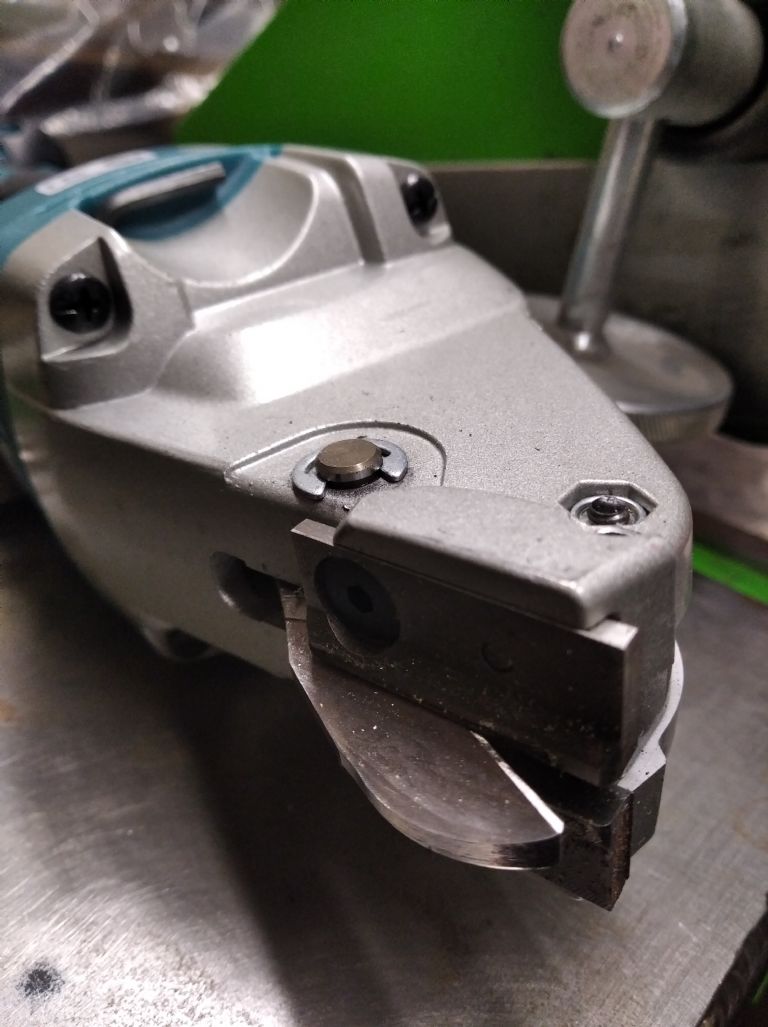Posted by Michael Gilligan on 22/04/2021 17:27:32:
Posted by John Smith 47 on 22/04/2021 16:50:29:
**LINK**
"The 28020 is a Tungsten tipped Saw Blade with high-alloy special steel"
Given that it is tipped with Tungsten, how come it can't cut mild steel? I get that it can't but I am curious to know why it can't. I was thinking that if we could slow down the RPM, and increase the torque of the motor (e.g. by having a higher wattage motor running more slowly) maybe that would help
Likewise I am also curious that solid carbide discs are no better.
.
.
The blade is intended for an underpowered machine with an inadequate spindle
Please see Peter’s post and my response, on page 1
The blades could almost certainly do your job: if suitably supported and adequately powered at an appropriate speed.
… but Proxxon needs to inform you in the context of its machines.
MichaelG.
CUTTING WITH BLADES
OK please can you help me out here. Use of blades means calculating the cutting speed (i.e. "Vc" ).
1) What is the correct range of cutting speeds for mild steel? A what would be a reasonable margin for error on this?
I looked it up on Wikipedia and found the suggested cutting speeds range from "3 to 38 metres/minute" for mild steel – but I believe some people are challenging this(?)
Aluminium is: "122 to 305 m/min" cutting speed.
Wood is: "183 to 305"
2) And how can I calculate the correct RPM vs diametre in order to get this cutting speed?
I believe that the correct equation is:
Cutting Speed (called "Vc", in metres per minute) = (Pi x Diam (in mm) x RPM) /1000 … yes?
i.e. Vc = (3.141592 x Diam x RPM)/1000
Example A.
In round numbers, supposing we had a disk of 100mm diametre running at 5,000RPM, plugging the numbers in we get:
Vc = (3.14 x 100 x 5,000 )/1000 ==> 1,571 ==> call it 1,500 m/min – which is more like 100 times what we want for steel, no?
Example B.
My little 22mm abrasive cutting disk cuts well at 20,000 rmp, but I notice that it doesn't seem to cut well at c. half that speed
Vc = (3.14 x 22mm x 20,000rpm)/1000 ==> 1,382 ==> call it 1,300 m/min
Example C.
Proxxon FET Table saw – large 80mm disc:
Vc = (3.141592 x 80mm x 7000rpm)/1000 ==> 1,759 ==> call it 1,700 m/min
Example D.
Proxxon FET Table saw – small 50mm disc:
Vc = (3.141592 x 50mm x 7000rpm)/1000 ==> call it 1,100 m/min
Example E.
Rutland Mini Saw
80mm disc, 6800 rpm ==> c. 1,700 m/min
80mm disc, 4400 rpm ==> c. 1,100 m/min
Example F.
Bosch GTS635-216
216mm disk, 5,500 rpm ==> c. 4,600m/min
(but can I find a 1mm thick disk? If not could I tolerate an unnecessarily wide cut?)
Conclusion:
These disks are all spinning FAR too fast, even for Aluminium and wood they are way too fast!
For mild steel presumably what is needed is much slower, but also more torque
CUTTING WITH ABRASIVE DISC
A 1mm wide cut would be a reasonable target. Yes things can get very hot but at least thin plates don't get bent where the don't get hot.
J
PS What about a reciprocating 'jigsaw' built into a table-top?
e.g. Rockwell BladeRunner X2 – is dirt cheap c. £170 (and does at least claim to cut steel!)

**LINK**
Let's be honest it's way too cheap to be of good build quality (sounded noisy in a youtube review) and it's USA voltage so I would need to get a voltage converter too. But it got good reviews on eBay (4.6* from 278 reviews).
Edited By John Smith 47 on 22/04/2021 20:45:24
Edited By John Smith 47 on 22/04/2021 20:45:47
Edited By John Smith 47 on 22/04/2021 20:46:07
 Michael Gilligan.
Michael Gilligan.

